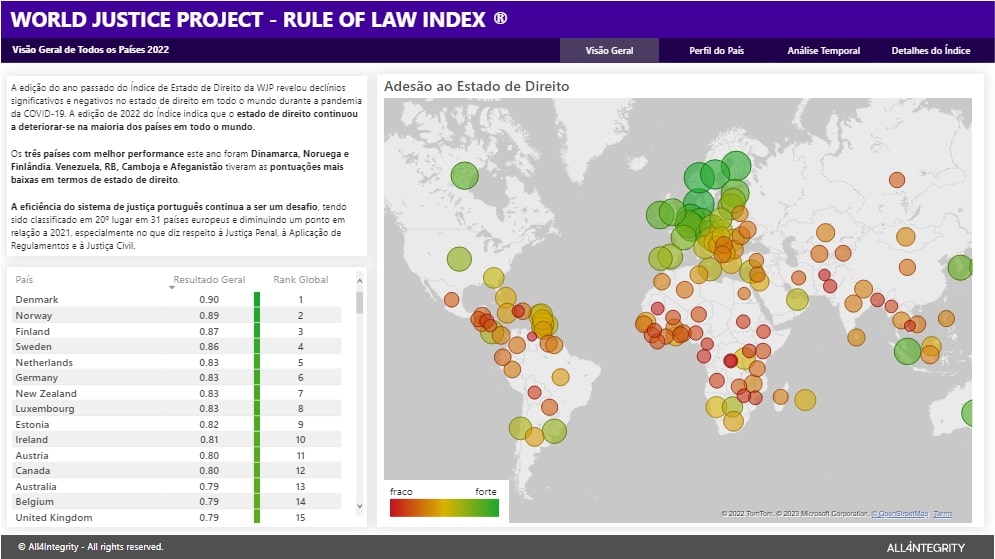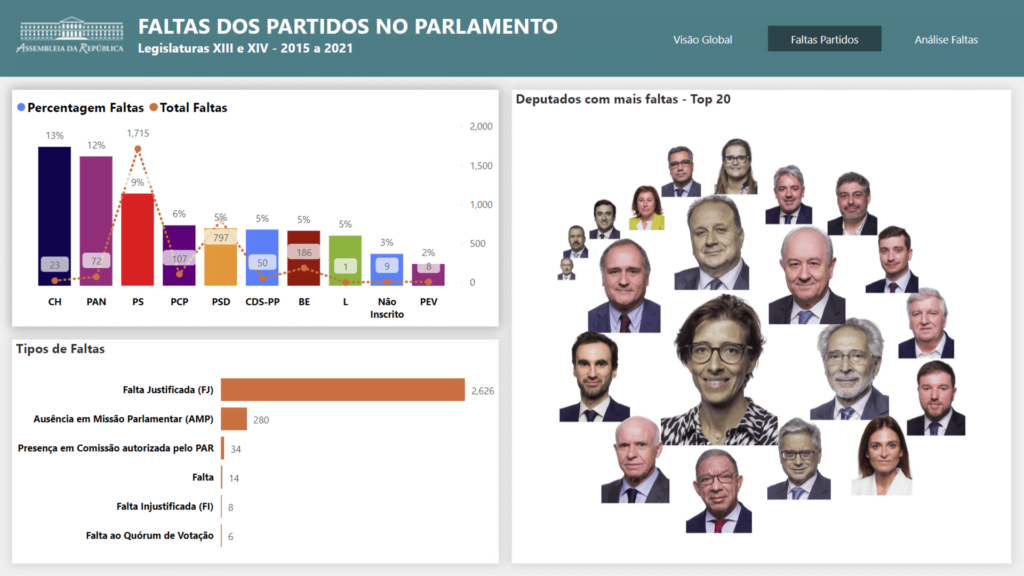Foreign Bribery 2022
Evaluation of the implementation of Transparency International’s OECD Anti-Bribery Convention between 2018-2021
The bribery of foreign public officials by multinational companies aims to make illicit profits, with enormous costs and consequences around the world. Foreign bribery diverts resources, undermines democracy and the rule of law, and distorts markets. The OECD Anti-Bribery Convention requires parties to prohibit and enforce foreign bribery. This report assesses the enforcement efforts of the 47 major exporting countries over the period 2018 to 2021.
Portugal was classified with Limited Application. with only two open investigations, but no cases with sanctions. The main deficiencies are an inadequate definition of foreign bribery; deficiencies in the law on the liability of legal persons; and inadequate sanctions for legal persons.
There is also a lack of human and financial resources for investigations and in the judicial system, as well as a lack of expertise and training in the enforcement of economic crimes. The slowness and complexity of the judicial system is also an obstacle to the effective suppression of corruption.
Data Source: Exporting Corruption 2022: Transparency International Assessment
Related
Analysis of the 2021 Corruption Perceptions Index (CPI), produced by Transparency International.
Analysis of the 2022 Economy and Society Digitization Index (DESI) in the 27 Member States of the European Union.
Analysis of the absences of deputies to plenary sessions of the Portuguese Parliament in the XIII and XIV legislative periods.







